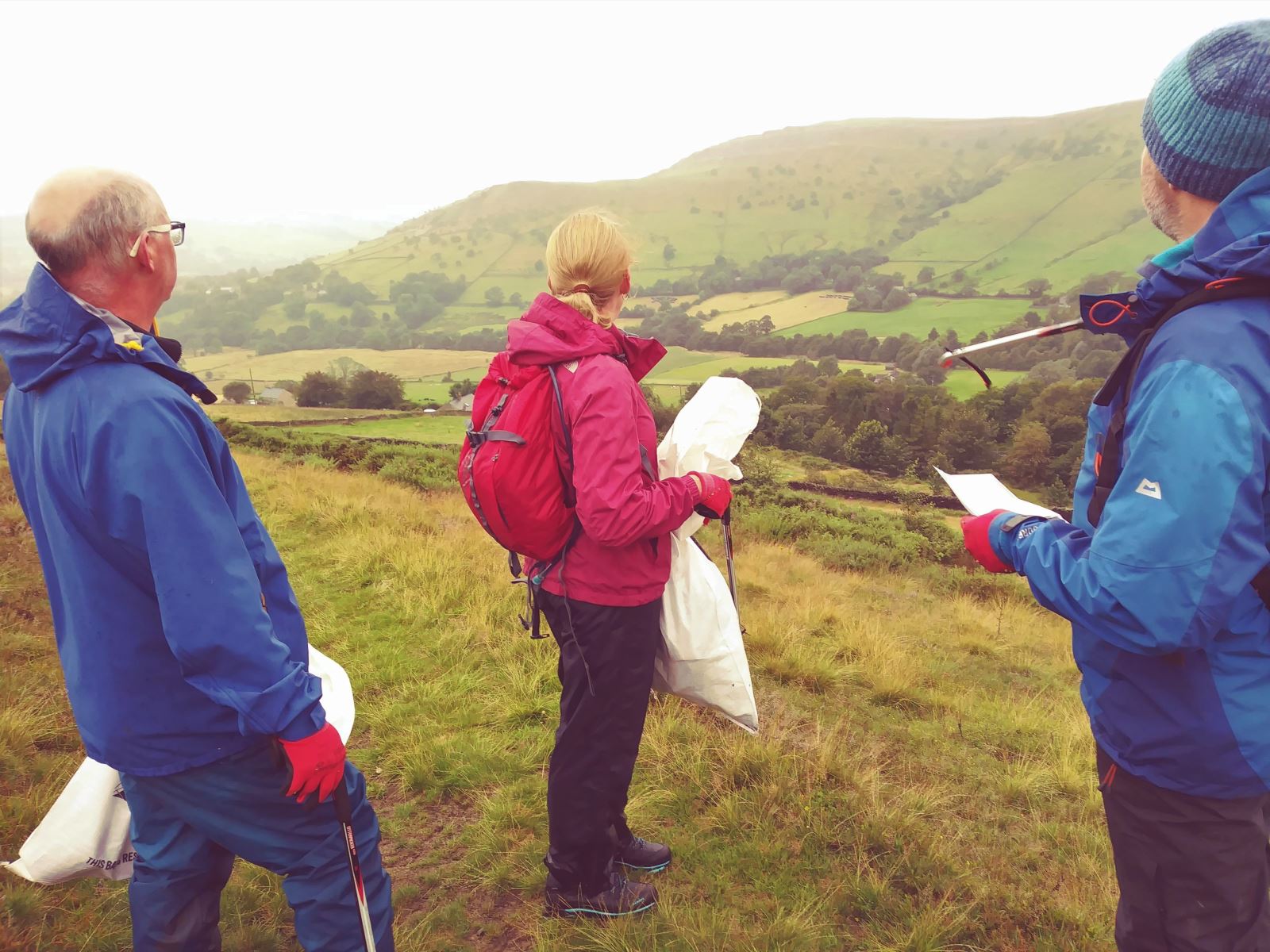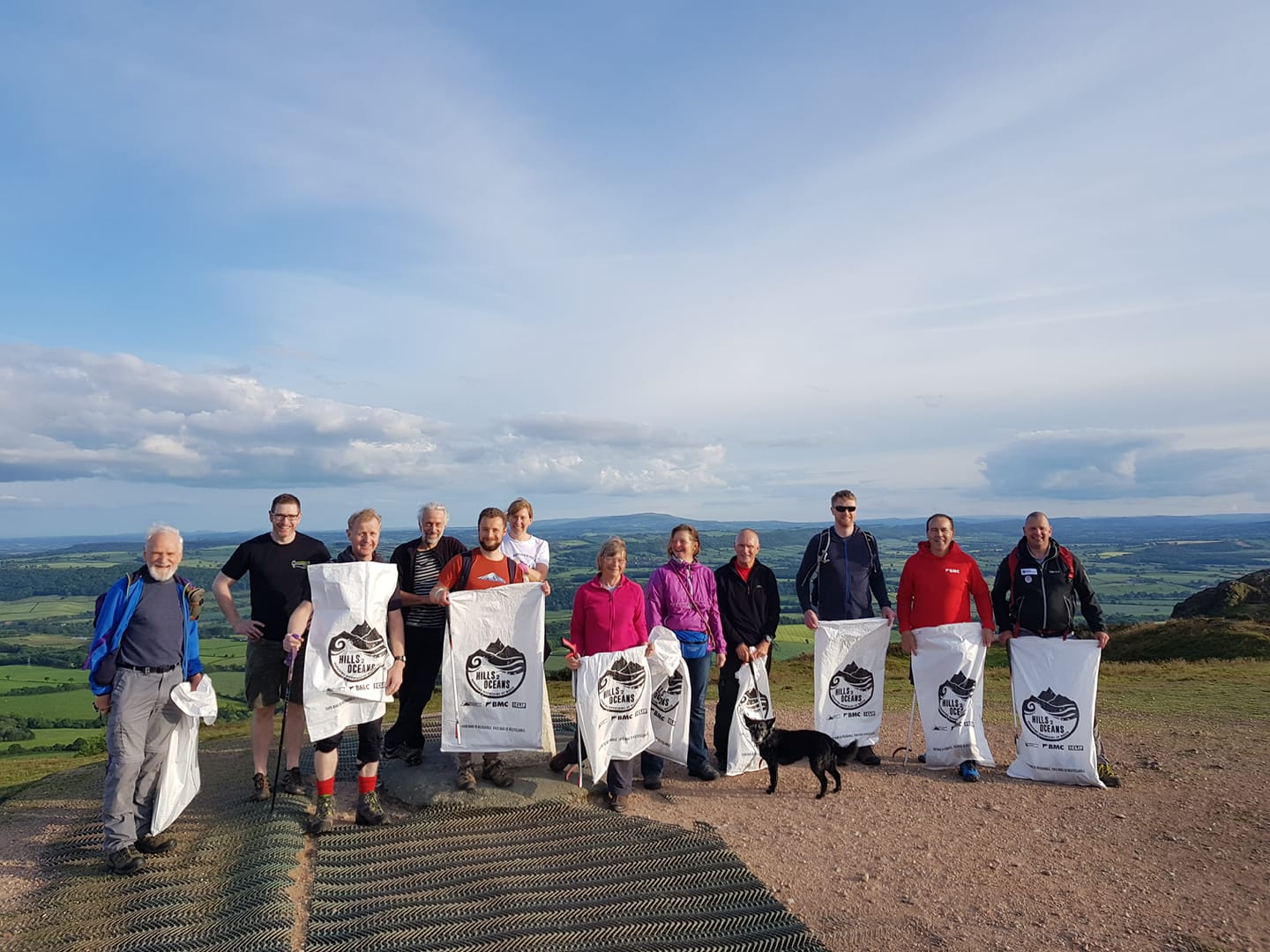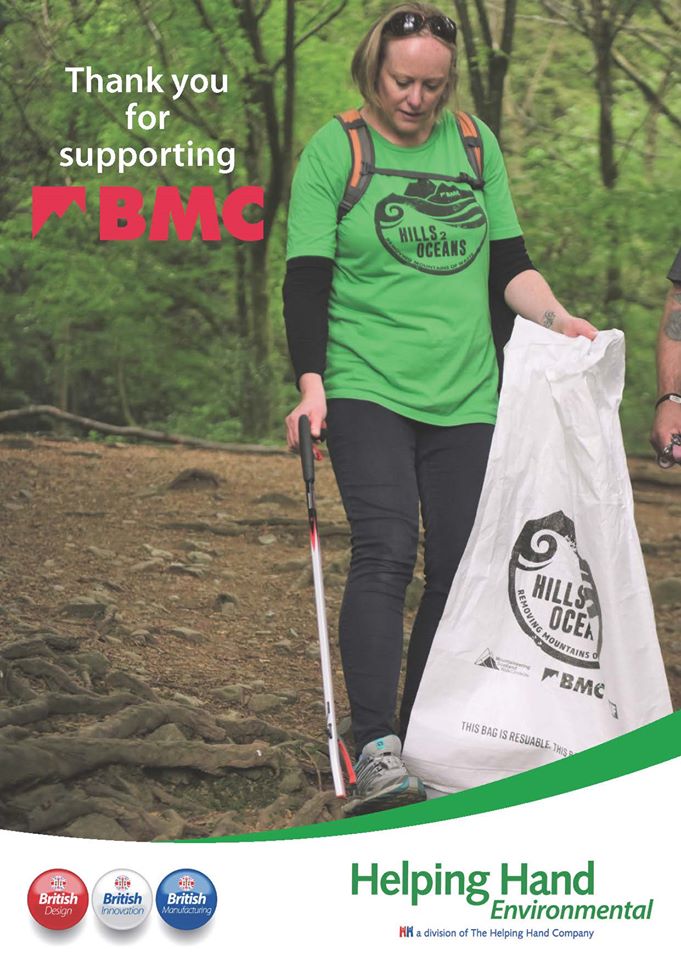Following the easing of lockdown, thousands of people have been heading to our hills, beaches, open spaces and crags which has led to widespread littering of some of our most treasured areas. We are encouraging our members and the wider public to help remove as much of this litter as possible before it ends up in our oceans.
It is estimated there are now 5.25 trillion pieces of ocean plastic debris, and the quantity of plastic in the sea will treble by 2025. There are also reports that some areas have seen a 300% rise in fly-tipping after local authorities closed recycling centres amid the Covid-19 crisis, and the recent hot weather and relaxed lockdown rules have meant an increase in discarded food and drink packaging, particularly single-use plastics.
So, what can you do to help?
Get involved
Perhaps you’ve already notied the rubbish in your local area or along your favourite walk or crag? We would encourage you, as part of this, to take a litter pick and remove as much rubbish as possible.
We can help by providing handheld litter pickers, free of charge (that can be recycled once they are no longer in use) and re-useable, biodegradable bin bags. Details of how to obtain these can be found below. Note: These will be sprayed with sanitiser before being sent out and packed by one member of staff wearing gloves.

Removing litter safely during Covid-19
England - Following the latest government advice litter picking can now be carried out alone, in pairs, in small groups of up to a maximum of six, including yourself, or (from July 4) two households can meet regardless of size.
This is BMC guidance as of 24th June 2020 and Government advice on the lockdown and social distancing may tighten or ease over time, so please ensure you follow the latest advice on COVID-19 for your own safety and that of others.
• Stay at least two metres from fellow volunteer and members of the public
From July 4 stay at least one metre from fellow volunteers and members of the public
• Always use a Litter Picker
• Wear protective gloves
• Wash your hands (before and after your litter pick)
• Use your own bag, bucket or cleansing bag to collect litter in
• Don’t pick up litter with your hands
• Try not to touch your face whilst out litter picking
• Don’t pick any more than you can put in your own bin at home
• Don’t pick up sharps/syringes
• Please keep hold of the litter pickers and bags to use again in the future and don’t share with other households
• Disinfect your equipment before and after use
• Once collected, you will need to dispose of your litter at home using your household general waste bins – your local authority might not have capacity to collect your litter bags during this time – please double check what your local service capacity is
• There is a national ‘Keep it, Bin it’ campaign, run by Defra with support from environmental charity Keep Britain Tidy, to encourage people to responsibly dispose of their litter
• To help keep you safe by following government advice, personal coronavirus waste (such as used tissues, face masks, disposable gloves, wet wipes or cleaning cloths) should be double-bagged, tied securely and kept separately for 72 hours, before putting into your general waste/wheelie bin at home
• As summer approaches, be aware that certain areas could be very busy so you may want to consider the timing of clean ups e.g. in the evening / early morning and avoiding weekend times
• Be aware of any ‘pinchpoints’ with lots of people congregating. Keep social distancing and wash hands after touching shared surfaces

Wales
Wales has different regulations to England in relation to the Covid-19 pandemic and consequently, the rules on travel, exercise and where you can go and who with, are quite different to those in England. The regulations and guidance in Wales were changed on Monday June 1st and the new key message from Welsh Government is to “Stay Local”.
• No person may leave the area local to where they are living or remain away from that area. Welsh Government state that for most people anything within five miles of home is local
• If your exercise (e.g. walking, running or cycling) starts and finishes directly from your front door, then there is no limit on the distance you can cover while undertaking that form of exercise
• If you stay local to the place where you live, you can carry out any form of outdoor activity including walking and litter picking
• See specific litter picking guidance above (for England).
READ: From 6 July - travel restrictions will be eased meaning that people who live in Wales will be able to travel further afield
Government guidance on the lockdown and social distancing may tighten or ease over time, so please keep checking the website for more information.
.jpg)
📥 DOWNLOAD: The H2O Resource Pack
📥 DOWNLOAD: The H2O Risk Assessment Template
📥 DOWNLOAD: Removing litter safely during COVID BMC guidance
🗑️ CLICK HERE TO OBTAIN FREE PICKERS AND BAGS 🗑️
Share your rubbish stories:
Our H2O Facebook page is full of interesting stories and is a great record of the amount of waste we are removing from our mountains, crags and hills. From nappies, banana skins, bottles and wet wipes to pants, socks and a ghetto blaster – we’ve been removing all sorts. We would love to hear from anyone that is about to undertake a litter pick. In particular, where you go, how much rubbish you remove and if you find anything of interest. You can do this by sharing your stories with us on our dedicated Facebook Group.
JOIN: The H2O Facebook Group
Did you know:
🚯 The Countryside Alliance reports a 300% rise in fly-tipping in some areas after local authorities closed recycling centres amid the Covid-19 crisis.
🚯 Everyday about eight million pieces of plastic pollution find their way into our oceans
🚯 Approximately 6.3bn tonnes of plastic waste is generated in the UK each year and out of this around 9% has been recycled, 12% incinerated & 79% is in landfills or the natural environment
🚯 Approximately 480bn bottles were sold globally in 2016 (approximately 1 million bottles per minute) and only 7% of these were recycled
🚯 A tissue takes around six weeks to break down, a cigarette butt takes up to 10 years and an aluminium can takes about 200 years.

More FAQs about the BMC and Covid-19
🌳 Can I go climbing / hill walking in England? Here's what you can and can't do in the 3rd Lockdown (January 2021)
🌳 What's the situation for climbing and hill walking in Wales? Read our full January update
😷 When and will the walls reopen? In England and Wales they're now closed for the National Lockdown. Read our walls article
✈️ I have a travel insurance question! Here's the FAQs
🏡 Do you have any advice for clubs and huts? Check out our latest clubs, meets and huts update
🛒 Is the BMC shop open? Yes - it is and BMC members get 10% off!
.jpg)
We want to say thanks to every BMC member supporting us through the Coronavirus crisis.
From weekly Facebook Lives and GB Climbing home training videos, to our access team working to re-open the crags and fight for your mountain access, we're making through with your support.
If you liked what we are doing, then tell your friends about us: www.thebmc.co.uk/join
« Back